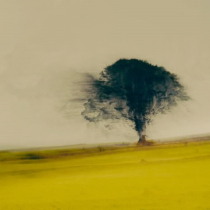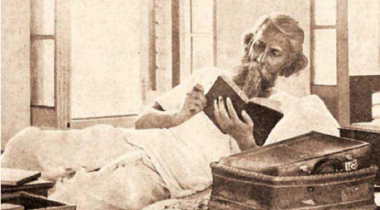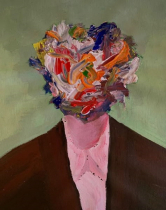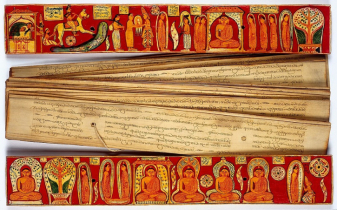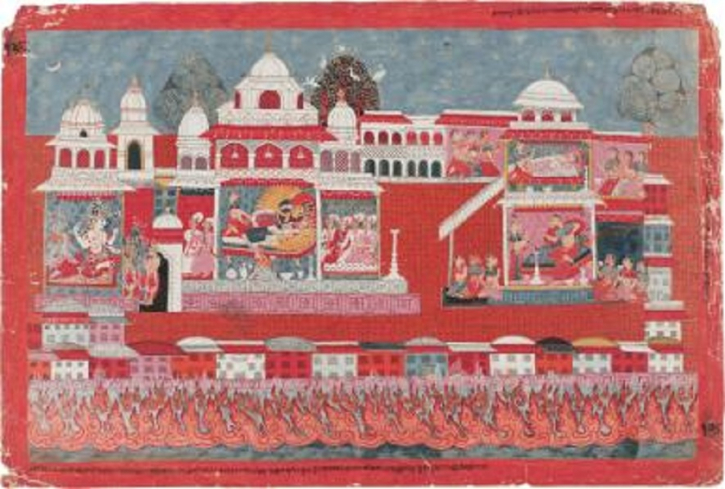
Rewriting the Myth: Buddhadeva Bose’s Tapaswi o Tarangini and the Modern Reimagination of the Purana
by Dr. Akhil Podder
Buddhadeva Bose’s Tapaswi o Tarangini (1966) as a modern reworking of Purana mythology. Drawing upon the ancient story of Rishyashringa, Bose reconstructs the narrative through a modernist lens, portraying mythic characters with psychological depth, erotic tension, and philosophical complexity. This study examines the play’s dialogic engagement with tradition, its nuanced gender politics, and its interrogation of asceticism and desire. Placing the play within the broader tradition of mythopoeic rewriting in Bengali literature-from Michael Madhusudan Dutt to Rabindranath Tagore-this paper argues that Bose not only modernizes myth but reinvests it with existential and moral ambiguity. Through textual analysis, intertextual comparisons, and theoretical reflection, this article repositions Tapaswi o Tarangini as a key text in twentieth-century Indian dramaturgy and myth criticism.
The modern Indian stage has often turned to ancient myth for renewal, subversion, or reaffirmation. In this tradition, Buddhadeva Bose’s Tapaswi o Tarangini stands as a unique example of what may be called a mythopoetic drama-a form that neither recites myth nor merely dramatizes it, but reconfigures it to explore the modern human condition. While rooted in the tale of Rishyashringa from the Ramayana and Mahabharata, Bose’s play subverts the Puranic blueprint by centering the psychological and existential transformation of its central characters-most notably the courtesan Tarangini and the ascetic Rishyashringa. The play transcends the dichotomy of virtue and sin, renunciation and sensuality, and in doing so redefines both the myth and its moral universe.
Bose’s literary career is marked by his relentless modernist impulse—his break from Tagorean romanticism and embrace of Western forms, symbolist poetics, and Freudian sensibilities. However, as this paper demonstrates, his modernism was not antithetical to Indic traditions; rather, it often engaged with the Purana through imaginative recontextualization. In Tapaswi o Tarangini, Bose joins a lineage of myth-reinterpreters-Madhusudan Dutt, Rabindranath Tagore, Brojendrakumar De—each of whom reframed myth to reflect new ethical, emotional, or aesthetic concerns. Bose’s innovation lies in fusing classical narrative with poetic drama, rendering myth as both theater and philosophical inquiry.
The story of Rishyashringa, a hermit raised in isolation, whose contact with a woman breaks his ascetic vow and brings rain to a drought-stricken kingdom, is originally one of seduction, sacrifice, and spiritual fall. In traditional texts, the focus remains on ritual efficacy and royal duty. Bose, however, retells the myth from the point of view of its marginal figures_Tarangini and Rishyashringa—and displaces the narrative’s didacticism with existential introspection. He reimagines Tarangini not as a temptress but as a tragic lover, and Rishyashringa not merely as a sage but a man torn between desire and transcendence.
Tarangini: The Courtesan as Modern Heroine:
Tarangini, trained in the erotic arts, is tasked with seducing the ascetic. Yet, she undergoes a transformation that is both emotional and philosophical. Her initial role as state instrument-“the jewel among courtesans”—gives way to her emergence as a self-aware subject who confesses love, not trickery. Her climactic monologue—"Today I bring only myself"—marks her evolution from seductress to seeker, challenging both her mother’s utilitarian worldview and the state’s instrumentalization of female sexuality.
Through Tarangini, Bose critiques the commodification of desire and offers an alternative: the courtesan’s longing for spiritual union, her yearning for recognition not as body but as beloved. She, not Shanta, ultimately receives Rishyashringa’s deepest emotional acknowledgment. Bose thus restores the agency of a marginalized figure, casting the ‘fallen woman’ as a redeemer.
Rishyashringa: Between Desire and Renunciation:
Bose’s Rishyashringa is no ideal sage but a conflicted youth awakened to love, torn from his father’s ashram and thrust into a world of statecraft, betrayal, and erotic confusion. His trajectory moves from ascetic detachment to human entanglement and then toward a transcendence that neither affirms nor negates desire but recognizes it as constitutive of being. His final declaration—“To her alone I am nothing but Rishyashringa”—reveals the deconstruction of institutional identities (prince, sage, savior) and the embrace of a relational self, stripped of social and ritual constructs.
Yet, this relationality is not fulfilled in union. Rishyashringa ultimately rejects both court and courtesan, seeking “emptiness” as his final destination. Bose uses this rejection not to glorify asceticism but to dramatize the loneliness that underlies both eros and transcendence.
The play subtly interrogates gender roles and erotic power. While Shanta and Anshuman represent conventional romantic union, Tarangini and Rishyashringa embody the unspeakable and unconsummated. The return of Shanta’s maidenhood, a mythic trope reused by Bose, dramatizes the mutability of sexual identity and the performativity of marriage.
Furthermore, the final union of Lolapangi and Chandraketu, two marginal, aging figures, complicates the romantic hierarchy. It suggests that fulfillment, if possible at all, lies not in mythic reunion but in the modest intimacy of shared loneliness.
Myth as Modern Allegory:
Bose’s most radical gesture is not simply retelling the Purana but repurposing it as an allegory of modern consciousness. The ashram becomes a metaphor for innocence, the city a site of corruption and awakening, and love—neither carnal nor spiritual—becomes a threshold experience that leads neither to marriage nor moksha but to “emptiness.”
In this vision, Tapaswi o Tarangini resembles the modernist dramas of Yeats, Eliot, and Tagore—mythic structures dismantled to reveal the hollowness of cultural ideals. Like Kafka’s protagonist, Rishyashringa becomes a man crushed under the weight of civilization. Like Draupadi, Tarangini becomes a woman torn between duty and desire, social degradation and self-assertion.
Buddhadeva Bose’s Tapaswi o Tarangini is not merely a play based on myth—it is a myth reborn through the lens of modern subjectivity. The Purana becomes a palimpsest upon which Bose inscribes themes of alienation, desire, memory, and existential longing. In doing so, he creates a poetic drama that does not merely stage the past but challenges the present.
The play ends not with fulfillment but with rupture. Yet, in this very rupture, it offers the possibility of a new sacredness—one not bound by ritual, gender, or role, but by mutual recognition and solitude. Bose’s gift to Indian drama lies in this profound reinvention: making myth speak to the crisis of modern identity while preserving its emotional grandeur.
References:
- Bose, Buddhadeva. Tapaswi o Tarangini. Kolkata: Mitra O Ghosh, 1966.
- Dutt, Michael Madhusudan. Meghnad Badh Kavya, 1861.
- Ghosh, Ajitkumar. Bangla Natoker Itihash. Kolkata: Ananda Publishers, 1980.
- Ghosh, Bishwajit. “Purana o Buddhadeva Bose.” Sahitya Patrika, Dhaka University, 1990.
- Hasan, Anupam. Bengali Poetic Drama: A Theoretical Approach. Dhaka: Bangla Academy, 2003.
- Sadik, Mahbub. “Poetry of Modern Pain: Buddhadeva’s Rusted Nail.” Natun Sahitya, 1972.
- Tagore, Rabindranath. Patita, 1896.
[ Dr. Akhil Podder is a pioneering figure in Bangladeshi investigative journalism. He served as the Chief News Editor and Chief Correspondent of Ekushey Television, the country’s first private television network. Earlier in his career, he contributed significantly to two of Bangladesh's most respected newspapers, establishing a strong foundation in journalistic excellence from his university days. He has received numerous national and international awards for his impactful and bold reporting on critical socio-political issues. Academically, Dr. Podder holds both a bachelor’s and master’s degree in Bengali Literature, ranking first in the second class in both. He earned his Ph.D. with a research focus on the dramatic dimensions of Buddhadeva Bose’s literary work, bridging media practice with deep literary scholarship. Dr. Podder’s career represents a rare synthesis of intellectual rigor and fearless journalism—making him a respected voice in both the media and academic spheres of South Asia. Writers E-mail: [email protected]]



